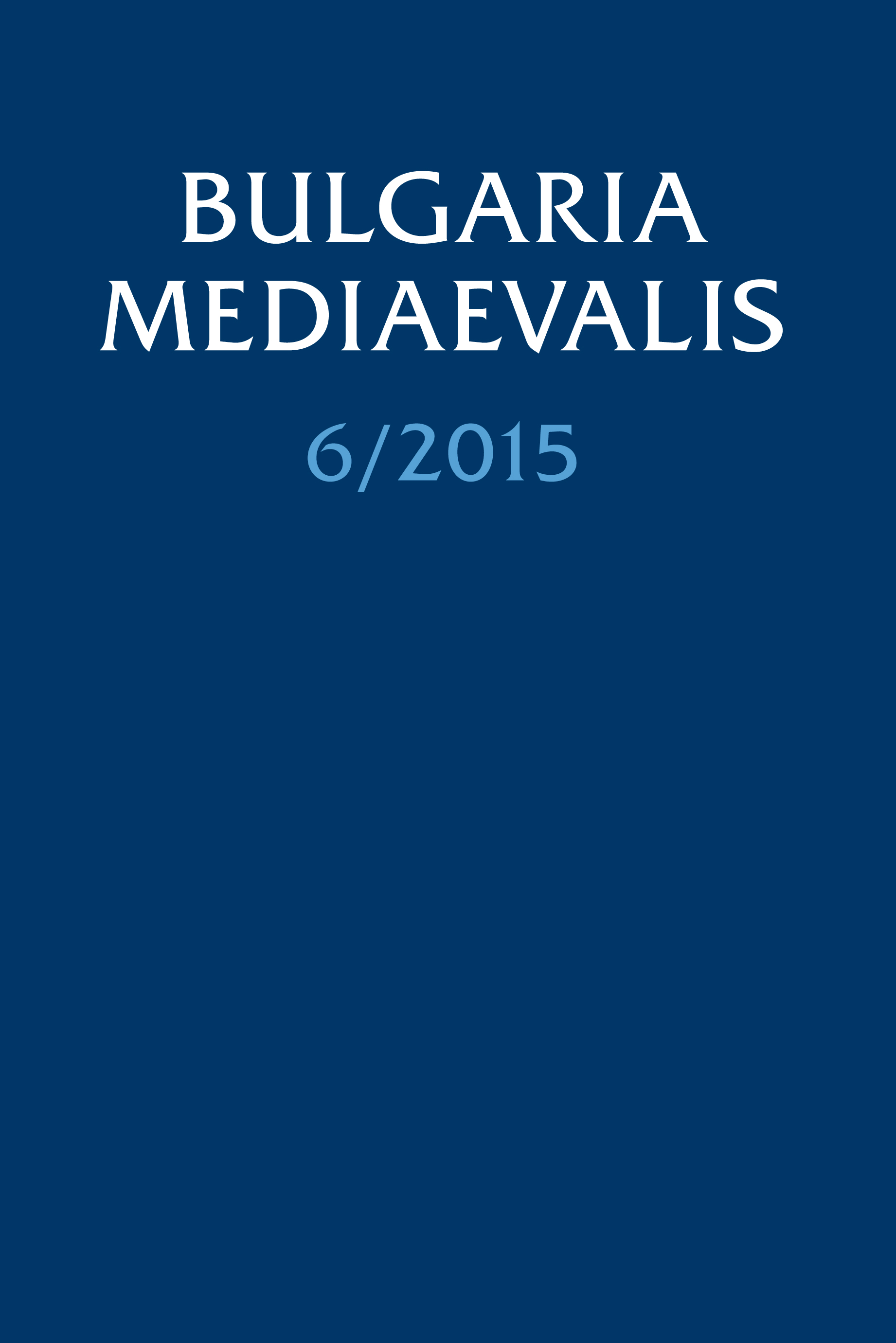
We kindly inform you that, as long as the subject affiliation of our 300.000+ articles is in progress, you might get unsufficient or no results on your third level or second level search. In this case, please broaden your search criteria.


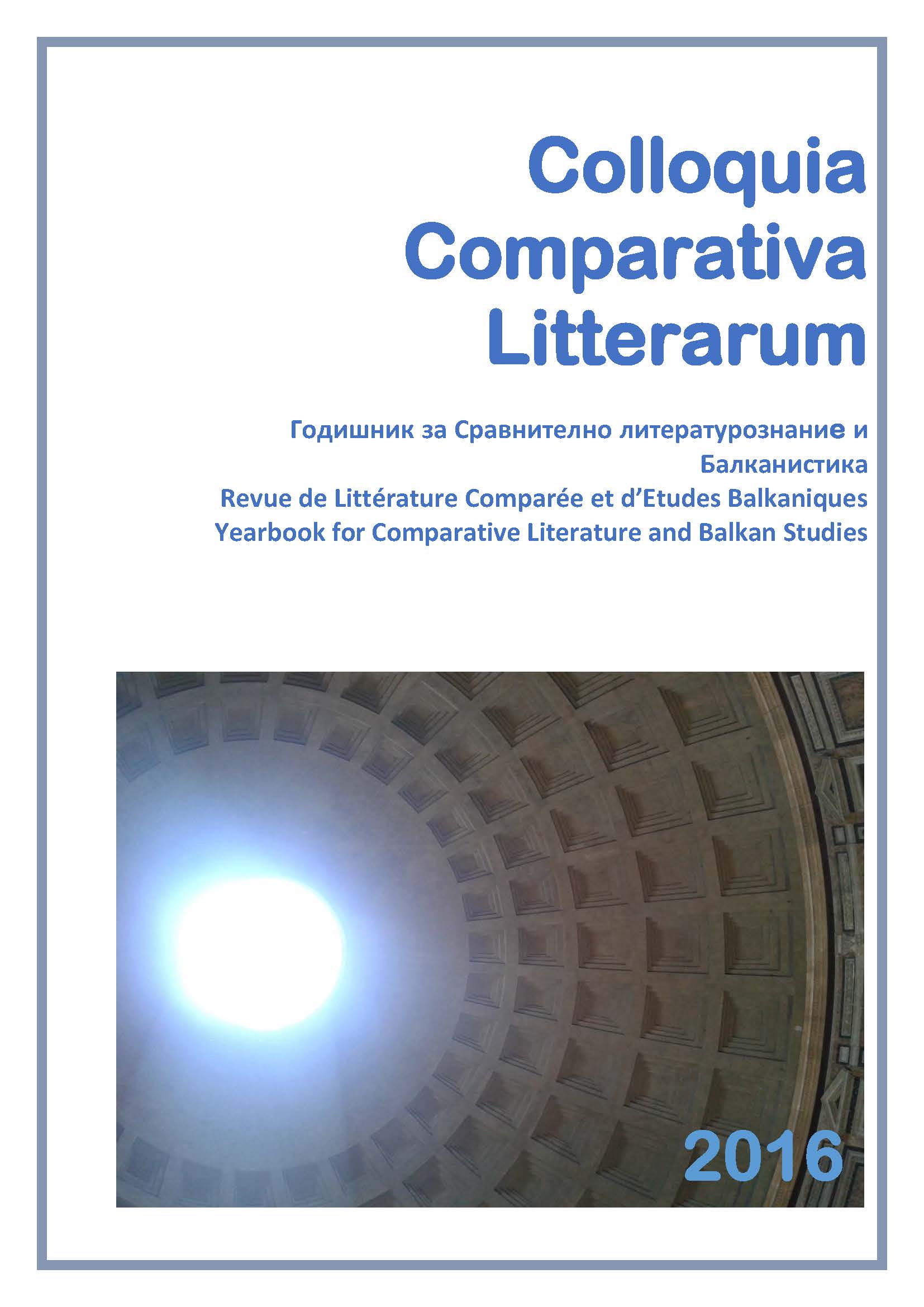
This article begins with a reading of a diary which is not explicitly “literary”; namely, the diary of the theologian Father Alexander Schmemann; it continues with A Writer’s Diary by Fyodor Dostoevsky and ends with the “diary of a country priest” from the novel of the same name by the French author Georges Bernanos. Under what conditions, to what extent and from what angle can we compare the journals of a renowned theologian, a well-known novelist like Dostoevsky and an anonymous novel character? The three texts turn out to be united by the search for an interface between everyday life and transcendent reality, as well as by the fact that in all three cases this interface is found through the revelation of “transcendent beauty” (as beauty simultaneously being and not being part of this world). The texts also have in common the fact that beauty was discovered in each case through an experience that marked the existence of the diarists and gave them strength to follow their life paths to the end.
More...
The article examines the special role of the journey - spiritual and physical, in three novels by immigrant authors from the Balkans: Paris-Athens by Vassilis Alexakis, Hotel Europe by Dumitru Tsepeneag and Murder in Byzantium by Julia Kristeva. Represented is the idea that, by leaving his motherland, the immigrant could never attach himself the same way to any place and be fully accepted in the new community. Thus, his constant movement appears as a peculiar reaction to this specific ‘uprooting’ and becomes a way of life and thinking – i.e. a modern ‘nomadism’.
More...
This article examines Southeast-European stories and novels, where for the first time a rejection of the Beautiful in favour of scientific perception can be observed: "Dimo the Orderly" by Gheorghi P. Stamatov (1869-1942), "Parasites" by Barbu Delavrancea (1858-1918), "Rich and Poor" by Grigorios Xenopoulos (1867-1951) are compared with Emile Zola’s (1840-1902) "Nana". These similar themes and topics (the class division of society, the interest in the poor, heredity, pathology, symbolized by money, illness, and death) provide arguments in order to emphasize the existence of a common "system of European values" in a much broader perimeter than that of Western literatures.Thanks to the ideas of literary Naturalism, the materialistic view of life, scientifically legitimized during the Nineteenth century, obtained the credibility to be seen as a literary value. From a literary perspective, we are faced with an objective position of the narrator, adopted by writers (at the expense of the Beautiful, considered until that point as an intrinsic aesthetic value and essential to the art).This article applied the Triangular Pattern, introduced by the author, which implies a constant referring to the phenomena, common to European literatures and does not recommend that scholars remain incarcerated within the study of parallels between Southeаst-European literatures.
More...
The paper opens by briefly outlining the development of women’s literature in the ex-„East European” countries since 1989. Then it turns to feminist literary theory tracking two different periods of its reception by, and adaption to, literary criticism in post-communist academic research. The concepts of women’s generations and women’s literary canon, vital for the western tradition of gynocriticism, are closely analyzed in line with their relevance to present-day women’s literature in post-communist culture. The paper closes by outlining a threefold model of the prospective to speak of women’s literature imbedded in, or in counter stance to, the traditional literary canon.
More...
Contemporary Migration Literature in German and English: A Comparative Study
More...
Comments on the articles under the head-title Outstanding Romanian Personalities in World Literature and Literature Studies
More...![Elena Prus. La francosphère littéraire et l’empreinte française. [Елена Прус. Литературната франкосфера и френският отпечатък.] Chişinău, Pontos, 2013.](/api/image/getissuecoverimage?id=picture_2016_26288.jpg)
Review of the book on the topic of French literature and its influence
More...![Cosmopolitanism and the Postnational. Literature and the New Europe. Edited by César Domínguez and Theo D’Haen. Editeurs : César Domínguez et Theo D’Haen]. Leiden/ Boston, Brill/ Rodopi, [2015].](/api/image/getissuecoverimage?id=picture_2016_26288.jpg)
Comments on the topic in the book: Cosmopolitan and the postnational. Literature and the New Europe.
More...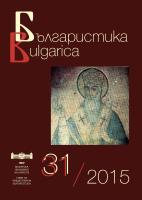
Defended PhD theses in Bulgaria in the field of linguistics, literature, history, folklore, ethnography and art studies
More...
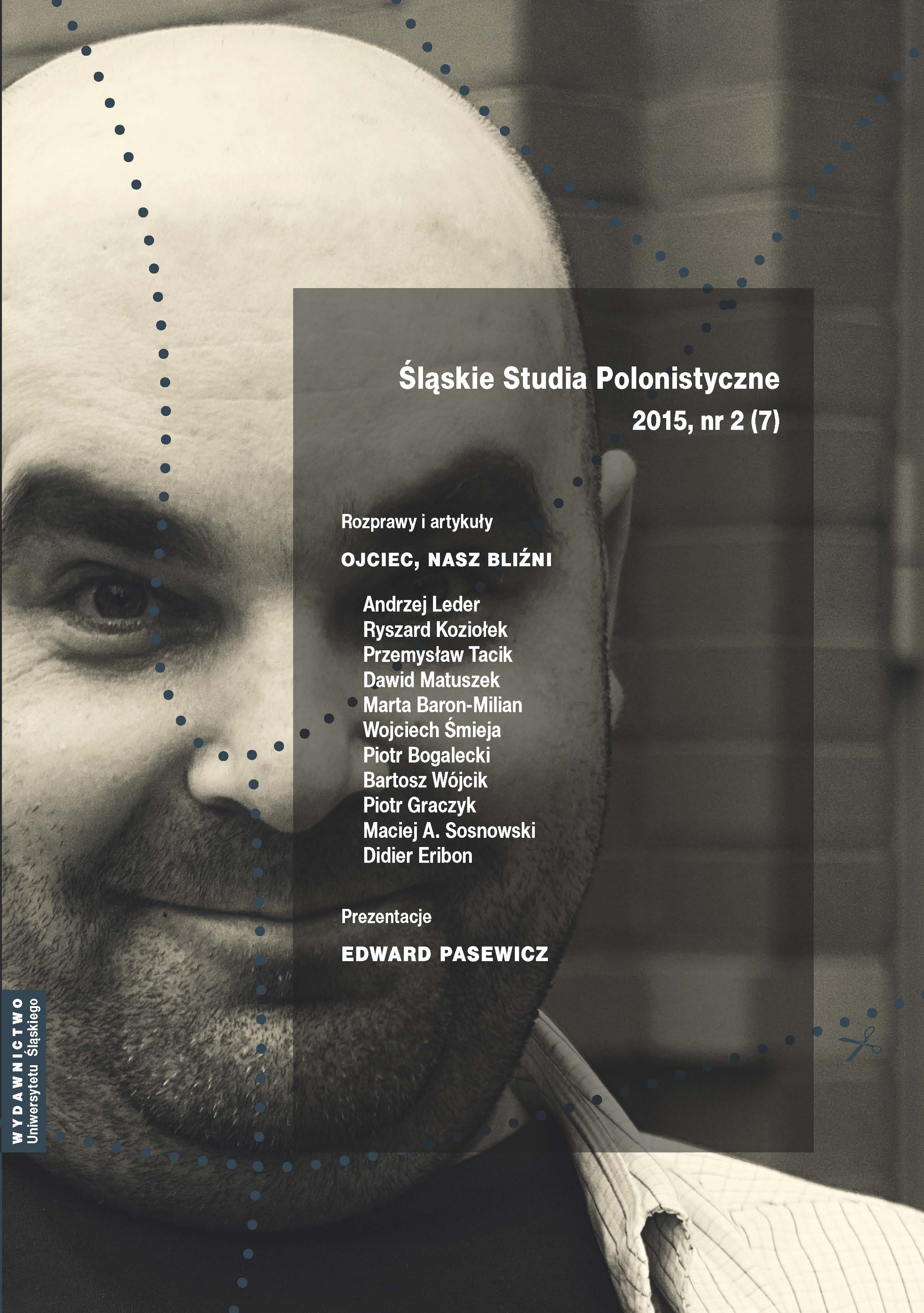
Basing his argumentation on Freud’s essay “Civilisation and Its Discontents”, the author poses a question about the essence of suffering which appears when the Law of the Father is suspended and no longer protects against the death drive. The author formulates a thesis that in the contemporary social space, abandoned by the Law of the Father, it is disciplinary practices that play a key regulative role, pretending to form the relations based on the law. These practices transform the drive energy of Thanatos, which then finds its embodiment in the everyday lifelessness of bureaucracy, the coolness of rules and the excess hidden beneath them. The answer to this situation is Eros, which drives people to community – yet not so much in the form of a family as of an infinite and noneconomic continuum of local games of love and death.
More...
The paper calls into question the status of (post)Lacanian atheism as can be inferred from writings of Lacan himself (mainly seminaries XI, XVIII, XX and XXIII) and Slavoj Žižek. Such atheism is based on the inexistence of “the Other of the Other”, which, however, cannot be merely stated, but must take the form of an injunction. In this postlacanian logic, true atheists are not those who deny the existence of God – even in its symbolic functions – but those who – actively relying on the absence of “the Other of the Other” – are able to carry out fundamental shifts within the symbolic structure of the Other. Yet, this atheism, which might be viewed as one of the strongest forms of denying the divine, is based itself on the monotheistic grid. Drawing upon some remarks from the late writings of Freud, the paper aims to reveal the inner, self-referential logic of the Father, whose position is preserved and strengthened after the actual death of the Father. Postlacanian atheism might be conceived of as the latest form of fatherly self-grounding, in which divine position perpetuates itself under the cover of injunctions to radical atheism. Finally, the paper propounds an interpretation of Kafka’s short story “The Cares of a Family Man” (“Die Sorge des Hausvaters”), in which the enigmatic figure of “Odradek” – a deathless half-object, half-creature – stands for the final material embodiment of the futile injunction to renounce the divine. Thus Odradek epitomises the Law, which is nothing but an insoluble rattle, emptied from the tension of desire, in front of which Kafka’s characters are forced to wait.
More...
The text considers the relations between friendship and revolution. The author seeks inspiration for the understanding of these relations in St. Thomas’s opusculum, “On Kingship”, Negri’s and Hardt’s books and Jadwiga Staniszkis “Samoograniczająca się rewolucja” [“Self-limiting Revolution”]. Friendship helps to rebel against tyranny but the overpowering rebellion hinders the maintenance of friendship – St. Thomas suggests. The solution is a difficult art of the self-limiting of revolution, inspired by the Christian love of a neighbour and Mao Tse-Tung’s cultural revolution (within limits, of course).
More...
The father is a dialectical figure. Taking C. Schmitt’s “state of exception” as a point of departure and drawing from G. Agamben’s and W. Hamacher’s analyses, I would like to present in my article the sense of this figure in the context of Hegelian speculation. Although “father’s” tendency appears to be a tendency towards the fullness of identity and pleroma, yet, it hides in itself negativity which cannot be eradicated and which condemns it to unresolvable ambiguity; whereas this ambiguity must lead to the sublation of “metaphysically” understood “fatherhood” for the sake of love.
More...![Recenzje i omówienia: Herbert i świat Rzymu [dot. J.M. Ruszar: „Słońce republiki”]](/api/image/getissuecoverimage?id=picture_2015_26408.jpg)
The review of Józef Maria Ruszar’s book “Słońce republiki. Cywilizacja rzymska w twórczości Zbigniewa Herberta” (2014) [„Sun of the republic. Roman civilisation in Zbigniew Herbert’s work”]. The author of the review emphasises that Ruszar convincingly inscribed Herbert’s fascination with antiquity (especially Roman antiquity) in the whole historiosophical reflection of the poet. The conviction about the progressive disintegration of the structures of civilization and society was closely related in Herbert’s writing with the sustained defence of Roman virtus. However, the thesis that in his poetic work Herbert was disputing with the programme and ideology of the literary modernism is perceived by the reviewer as questionable.
More...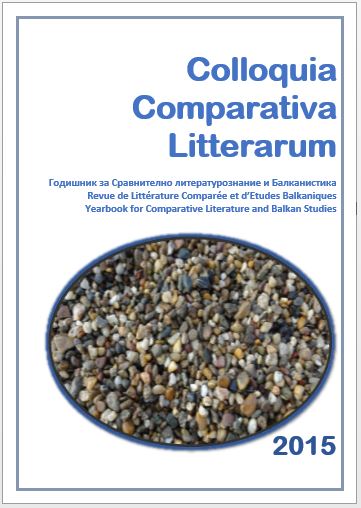
The paper examines the selection, structuring and dramatic rendition of the fairy tale plots in the Francophone and the Slavic symbolist dramas, to point out their typological resemblances and inner richness. The study finds out that rewriting the magic stories and their syncretic approach characterize both theatres and mark out their similitudes. However, the Francophone symbolists attempt to intensify the universal and mystical meaning of the folktales. On the other hand, the Slavic authors insert some national and parodic trends in their plays, strengthen the art synthesis and anticipate, in that way, the dramatic experiments in the European vanguards.
More...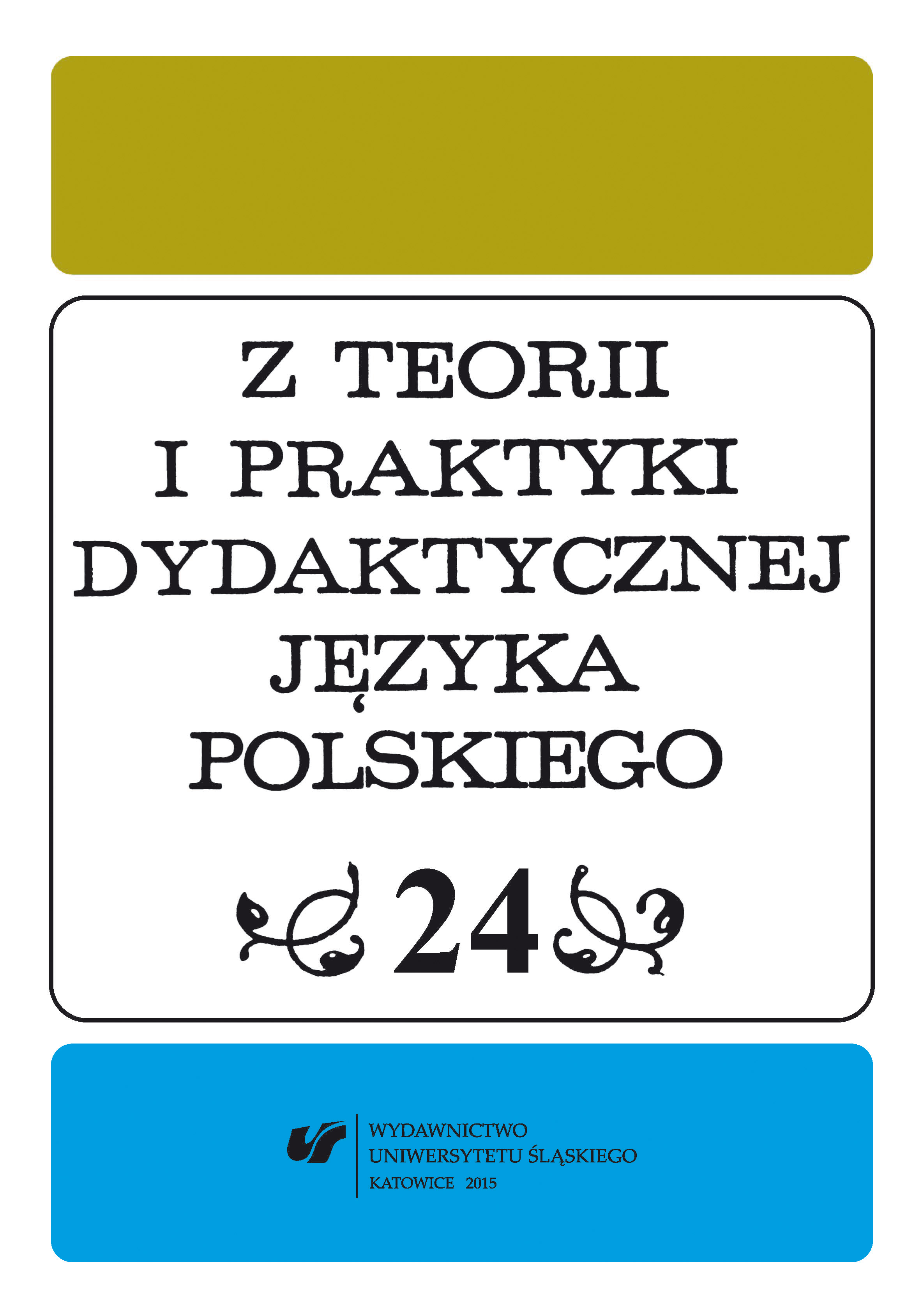
This article attempts to reflect on the place of the Holocaust in school discourse in the Polish language course that constitutes part of three stages of education. While discussing — on the basis of particular texts — the evolution of one of the fundamental topoi of the Holocaust, namely a diary or journal, the authoress presents such ways of interpretation that will support the contemplation of the Shoah at school. However, the article does not offer any specific methodical solutions; it rather constitutes an invitation to a deeper reflection over the well-known literary texts, when enriched with new contexts.
More...
In her article, the authoress proposes that — because of changes in both the contemporary society and the family model — contemporary children’s literature should be de-stereotyped. She refers to the Swedish and Norwegian experience: literary texts for children (available in Polish translation) by F. Nilsson and M. Nilsson Thore, R. Lagercrant, E. Eriksson, in which the authors address the problem of fear of “otherness”, describe students from the perspective of a child and life from the perspective of the so-called misfits. Schools should not — according to the authoress — resign from the books that depict models of, e.g. gender, in a way that is different than the ones desired in the contemporary society. Moreover, the image of a mother should also be de-stereotyped, as in Dorota Masłowska’s book titled “Jak zostałam wiedźmą. Opowieść autobiograficzna dla dorosłych i dzieci” („How I became a witch. An Autobiographical Tale for Adults and Children”). Children’s literature is to teach young readers how to accept themselves and others, and to educate the young generation how to be open to “Otherness.”
More...